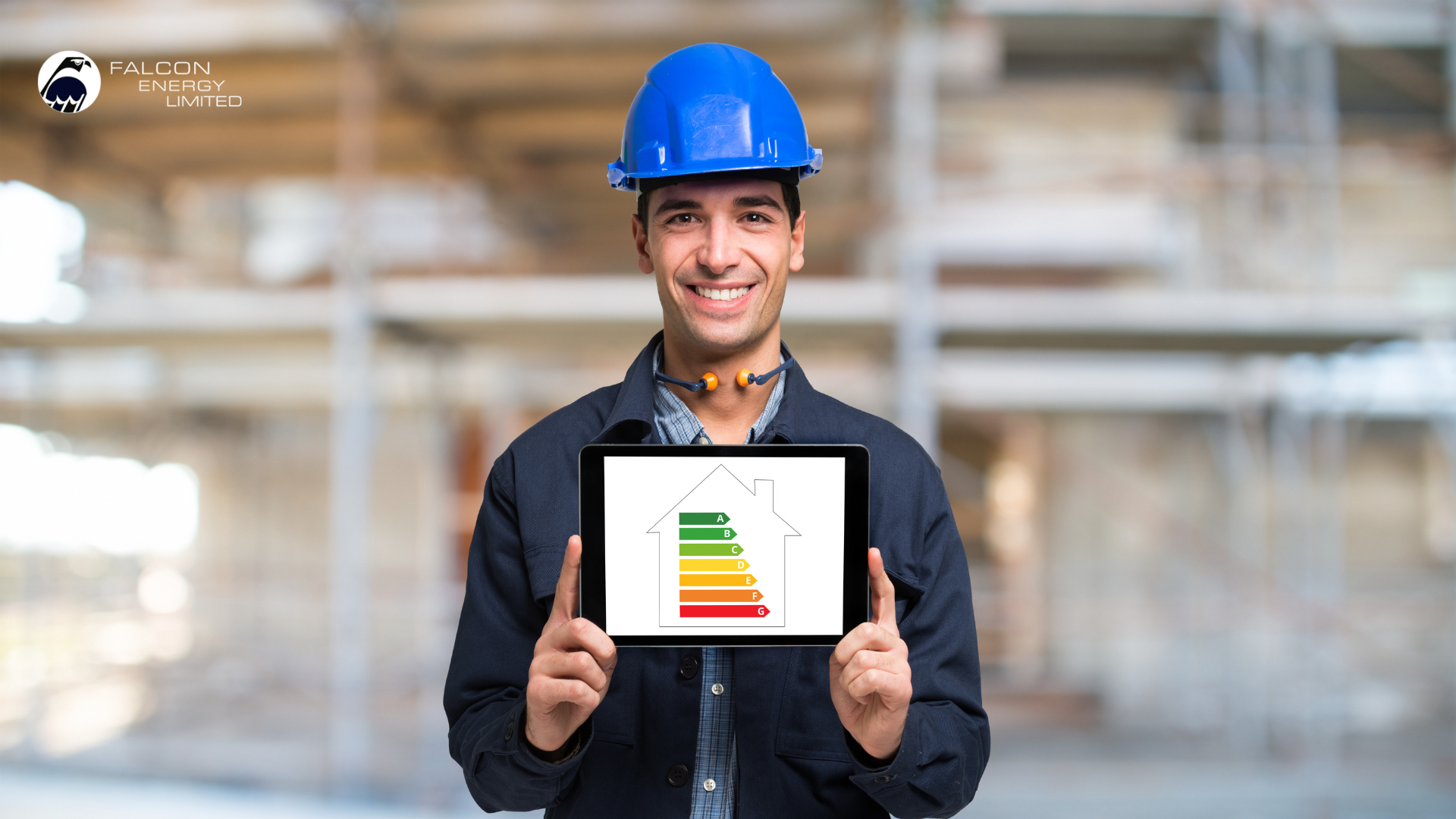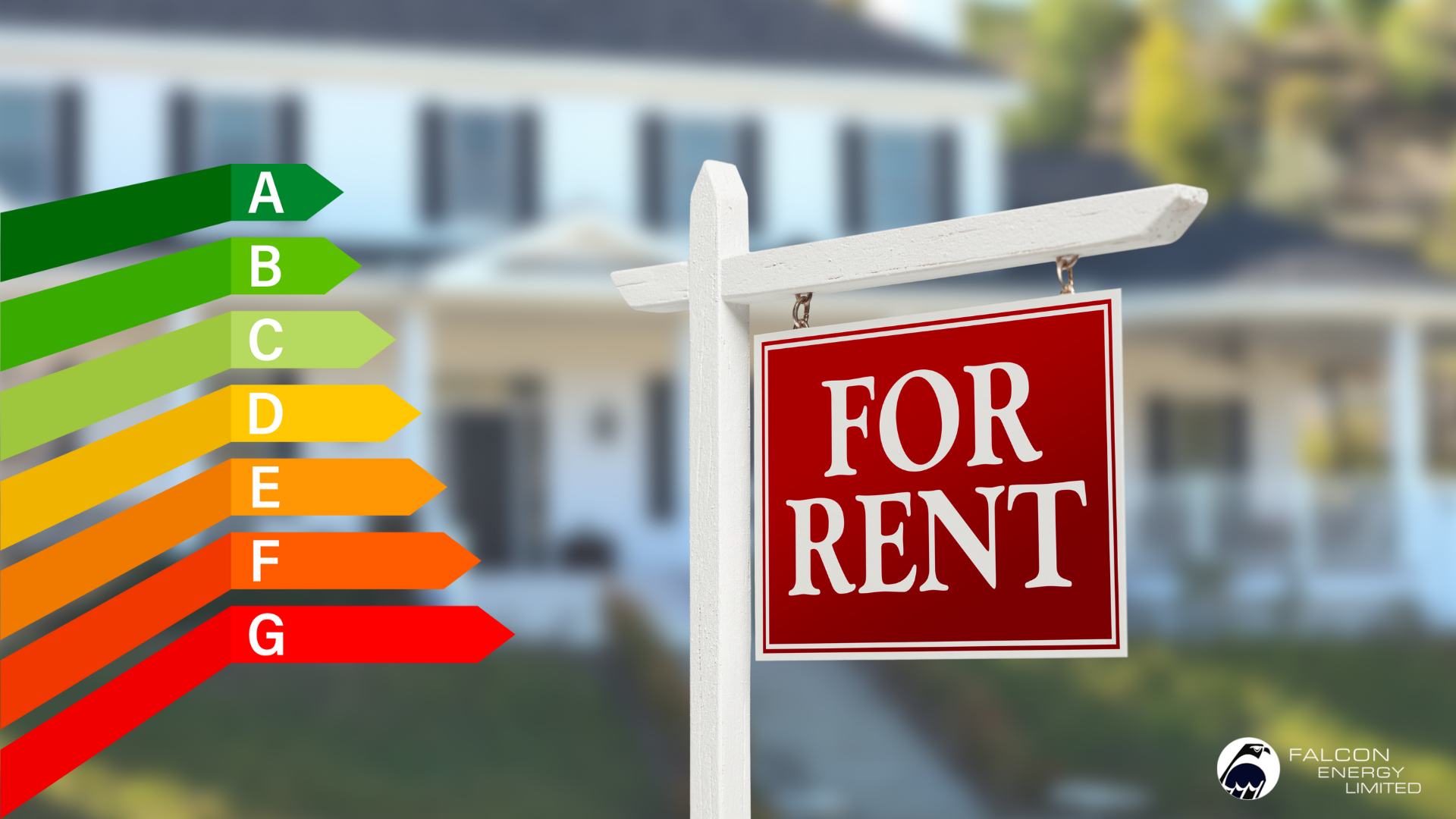In today's era of increasing environmental consciousness and energy efficiency, understanding and optimising the energy performance of buildings has become more crucial than ever.
But what exactly is an EPC, and why is it so important?
An EPC is a document that assesses the energy efficiency of a property, providing valuable insights into how much energy it consumes, the associated carbon emissions, and potential areas for improvement. It not only helps individuals make informed decisions about the energy efficiency of their homes or businesses but also plays a vital role in achieving national energy efficiency targets.
The Government EPC Register acts as a central database where all EPCs for properties across the United Kingdom are recorded. This comprehensive register allows property owners, potential buyers or tenants, and even policymakers to access and evaluate the energy performance of a building. The register also facilitates the monitoring of energy efficiency trends and aids in the development of targeted policies and regulations to promote sustainable practices.

Energy Performance Certificates for your business premises
Energy Performance Certificates (EPCs) are required for all commercial buildings in the UK that are being sold, rented, or constructed. EPCs provide information about a building's energy efficiency and are valid for a period of 10 years.
Here are some key points about EPCs for business premises:
EPCs aim to help businesses and potential buyers/tenants understand the energy efficiency of a building. They provide information on the building's energy consumption, carbon emissions, and recommendations for improving energy efficiency.
It is a legal requirement to have a valid EPC when selling, renting, or constructing a commercial building. Failure to comply with this requirement can result in fines and penalties.
An accredited energy assessor conducts an assessment of the building to determine its energy performance. The assessor takes into account factors such as insulation, heating systems, lighting, and ventilation. The assessment is based on the building's fabric and services, not the behaviour or activities of the occupants.
EPCs provide a rating for the building's energy efficiency on a scale from A to G, with A being the most energy-efficient and G being the least efficient. The rating is accompanied by recommendations for improving energy performance.
If your business premises are frequently visited by the public, you may be required to display the EPC in a prominent place, such as the entrance or reception area.
Some buildings are exempt from requiring an EPC, such as places of worship, temporary buildings, and certain agricultural buildings. However, it is advisable to check with a qualified energy assessor or the local authorities to determine if your premises fall under any exemptions.
Having a good energy performance rating can enhance the marketability of your business premises, attract more tenants/buyers, and potentially lead to cost savings through improved energy efficiency.
To obtain an EPC for your business premises, you should contact a qualified energy assessor who will carry out the assessment and issue the certificate. It is recommended to seek quotes from multiple assessors to ensure competitive pricing and quality of service.

Energy Performance Certificates for your rented property
If you are a landlord renting out a property in the UK, you are required by law to have an Energy Performance Certificate (EPC) for the property. An EPC provides information on the property's energy efficiency and gives recommendations on how to improve its energy performance.
When is an EPC required?
An EPC is required whenever a property is marketed for rent or sale. It must be obtained before the property is advertised, and the certificate must be made available to prospective tenants.
How to obtain an EPC?
You can find an accredited energy assessor to carry out an EPC assessment on your property. They will visit the property, assess its energy efficiency, and produce the certificate. EPC assessments typically cost around £50-£100, depending on the size and location of the property.
How long is an EPC valid?
An EPC is valid for 10 years and can be reused for multiple tenancies during that time. However, it is recommended to update the EPC if any significant energy efficiency improvements are made to the property.
What are the penalties for non-compliance?
Failure to provide an EPC or make it available to tenants can result in a penalty charge of up to £5,000. It is important to ensure compliance with EPC regulations to avoid any legal issues.
What are the benefits of having an EPC?
Having a valid EPC can attract more tenants, as energy-efficient properties are often more appealing. It also helps tenants understand the energy costs associated with the property and provides guidance on how to save energy and reduce bills.
In summary, if you are renting out a property in the UK, it is essential to obtain an Energy Performance Certificate (EPC) and make it available to prospective tenants. The EPC provides important information on the energy efficiency of the property and helps both landlords and tenants make informed decisions regarding energy consumption and costs.

Energy Performance Certificates for your home
Energy Performance Certificates (EPCs) are documents that provide information about the energy efficiency of a property. They are required when a property is built, sold, or rented out.
Here are some key points about Energy Performance Certificates for your home:
EPCs are designed to help homeowners and tenants understand the energy efficiency of their property. They provide information on the property's energy use, carbon emissions, and suggestions for improving energy efficiency.
To obtain an EPC, a qualified energy assessor will visit the property and conduct an assessment. They will consider various factors such as the property's insulation, heating system, windows, and lighting. The assessment is non-invasive and typically takes around an hour.
The EPC will provide an energy efficiency rating on a scale from A to G. A-rated properties are the most energy-efficient, while G-rated properties are the least efficient. The rating is based on the property's carbon emissions and energy consumption.
The EPC will also include recommendations for improving the property's energy efficiency. These suggestions may range from simple measures like installing energy-saving lightbulbs to more significant upgrades such as adding insulation or upgrading the heating system.
In many countries, including the UK, it is a legal requirement to have a valid EPC when selling or renting out a property. The certificate must be provided to potential buyers or tenants free of charge. Failure to provide an EPC can result in fines.
EPCs are valid for a specific period, typically 10 years. If you make any significant energy efficiency improvements to your property, it may be worth obtaining a new EPC to reflect the changes and potentially improve your property's rating.
In conclusion, Energy Performance Certificates provide valuable information about the energy efficiency of your home. They can help you identify areas for improvement and make your property more environmentally friendly while potentially saving on energy costs.

EPCs for Non-residential Agricultural Buildings
Energy Performance Certificates (EPCs) are required for non-residential agricultural buildings in the European Union. These certificates provide information about the energy efficiency of a building, allowing potential buyers or tenants to make informed decisions.
The building standards guidance suggests that non-residential agricultural buildings must have an Energy Performance Certificate (EPC) if they are constructed, sold, or rented out.
The guidance states that the EPC must be obtained before the building is marketed for sale or rent, and the certificate must be displayed in a prominent place within the building. The EPC is valid for 10 years and can be used for multiple transactions during that period.
The EPC is based on an assessment of the building's fabric, heating, cooling, ventilation, and lighting systems. The energy performance is rated on a scale from A to G, with A being the most energy-efficient and G being the least efficient. The assessment also includes recommendations for improving the building's energy performance, such as installing insulation, upgrading heating systems, or using energy-efficient lighting.
The guidance highlights that having an EPC can be beneficial for non-residential agricultural buildings as it can help potential buyers or tenants make informed decisions about the energy efficiency of the building and the potential costs of running it. Additionally, improving the energy performance of the building can lead to cost savings and reduce greenhouse gas emissions.
Get your energy efficiency rating with Falcon Energy
We offer Energy Performance Certificates (EPCs) to determine the energy efficiency rating of your property. EPCs are a legal requirement in the UK and provide a detailed analysis of a building's energy consumption and carbon emissions.
